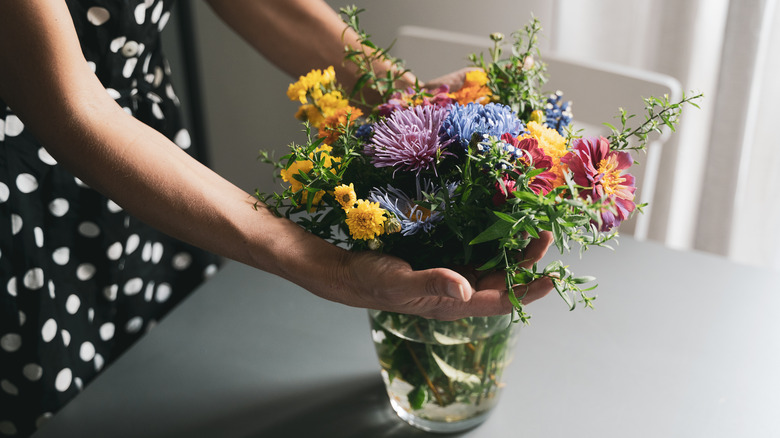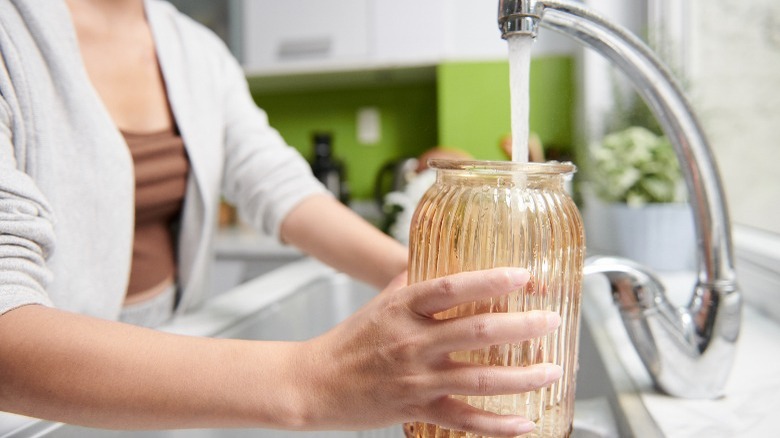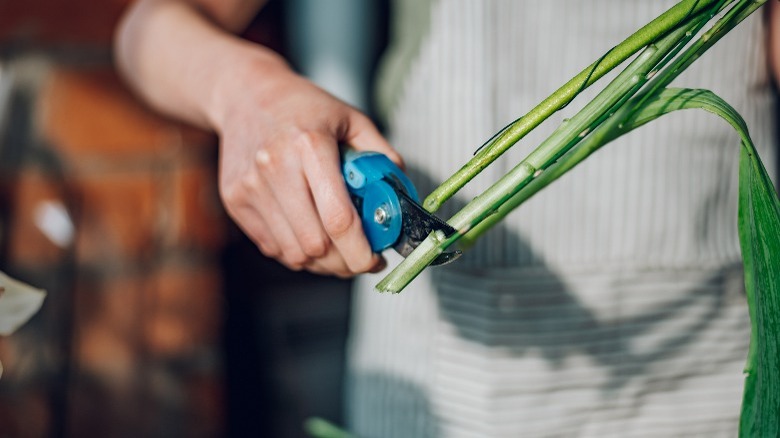Does TikTok's Charcoal Hack Really Keep Cut Flowers Fresh?
We all love the beauty of having fresh-cut flowers in our homes; we just wish they lasted a little longer. And who doesn't love finding another great use for something like charcoal? One TikTok video shows that you can use a small piece of a charcoal briquette in your flower vase to keep cut flowers fresh for longer, but does it really work? Although it sounds good in theory, it's simply not going to do much, if anything. We're going to try and explain why even though this hack sounds like it should work, it really doesn't hold up to scrutiny.
The first thing to understand is that there are charcoal briquettes, and then there's what's called activated charcoal. Activated charcoal is what's used in water filters, gardening, and to help in cases of poisoning, etc. It goes through an additional step during processing that adds oxygen to increase its porosity as well as its surface area, which is around 950 to 2000 m2/g. To put it in perspective, a teaspoon of activated charcoal has a surface area about the size of a football field. This is what makes it effective as a filtering agent.
Why it's not effective
Despite the many sources online and on social media that claim that charcoal briquettes can save your flowers by filtering out impurities found in water like chlorine, you shouldn't use them to filter water, mainly due to the decreased surface area and the impurities and binders in the briquettes. Throwing a piece of a briquette in a vase with water and flowers does little to filter the water. To be effective, you would need to pour the water through the charcoal to filter out impurities. In fact, briquettes could potentially add more contaminants to the water than they might absorb.
Secondly, chlorine isn't really an issue with tap water in a vase of flowers, as it begins evaporating immediately. In fact, tap water, in general, is not typically harmful to cut flowers. Interestingly, according to Science Direct, "Chlorine is used in the cut flower industry to suppress the growth of bacteria in handling and vase solutions." However, you should take care when using softened water since it's treated with sodium, which could be harmful to cut flowers. In this case, you might consider bottled water.
The best way to keep flowers fresh
Unfortunately, there's still been no discovery of the fountain of youth for cut flowers. There are several hacks to try, such as aspirin or sugar, which some people swear by to keep flowers fresh longer. But most professionals offer some basic advice that seems to be fairly universal. First, start with a clean vase with no soap residue, which can shorten their lifespan. Second, always use a fresh packet of flower food in clean, fresh water. You can use a little bit at a time to make one packet last for a few water changes.
If you don't have any packets of flower food, make your own! Use two tablespoons of sugar and two tablespoons of vinegar, or simply a little lemon-lime soda. Next, trim your stems at a 45-degree angle, at least ¼ to ½ inches from the bottom. This gives the stems a larger surface area to absorb water with. Additionally, trim them under running water to prevent air pockets from forming. Be sure to remove any foliage from below the water line. Display them away from direct sunlight. Finally, repeat all these steps every other day. This is truly the best way to keep your cut flowers fresh!


